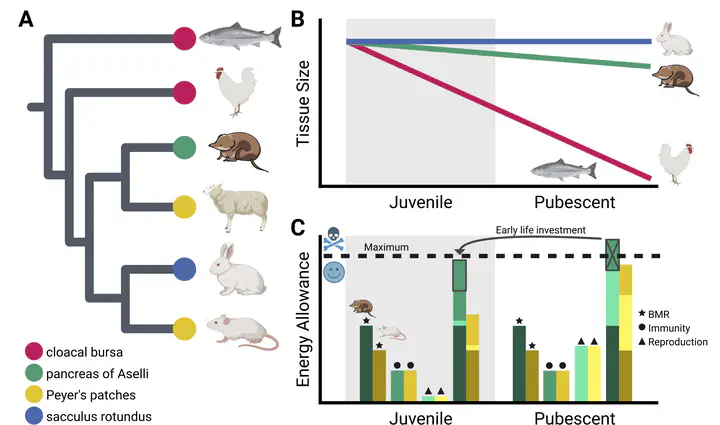Gene expression reveals the pancreas of Aselli as a critical organ for plasma cell differentiation in the common shrew
 Image credit: W.R. Thomas
Image credit: W.R. Thomas
Abstract
Background Almost all mammals rely on the thymus and bone marrow to generate and differentiate B and T cells essential for adaptive immunity. A few members of the family Soricidae, or true shrews within Eulipotyphla, have also evolved an enlarged pancreas of Aselli, a kidney-sized organ hypothesized to serve this primary immune role, and whose gene expression profile is unknown. Results Here we introduce transcriptomes of juvenile Eurasian common shrews (Sorex araneus, family Soricidae) pancreas of Aselli. We compare these to those of the shrew spleen and chick bursa of Fabricius, an analogous, bird- specific organ, and explore differential expression overlaps with positively selected genes. Differential gene expression analyses revealed higher expression of genes that regulate the differentiation of B cells into long-term plasma cells (e.g., IRF4, XBP1, PRDM1) compared to the spleen and more convergent expression with the bursa of Fabricius than expected by chance (including IRF4). Overlaps with positive selection were as expected and included PTPRCAP, which regulates both T and B cell antigen responses and lymph node size. Conclusions Our results support the specialized role of the pancreas of Aselli in adaptive immunity, and we propose this uniquely enlarged organ evolved at the intersection between extreme metabolic demands and high parasite burdens in tiny yet very active shrews.